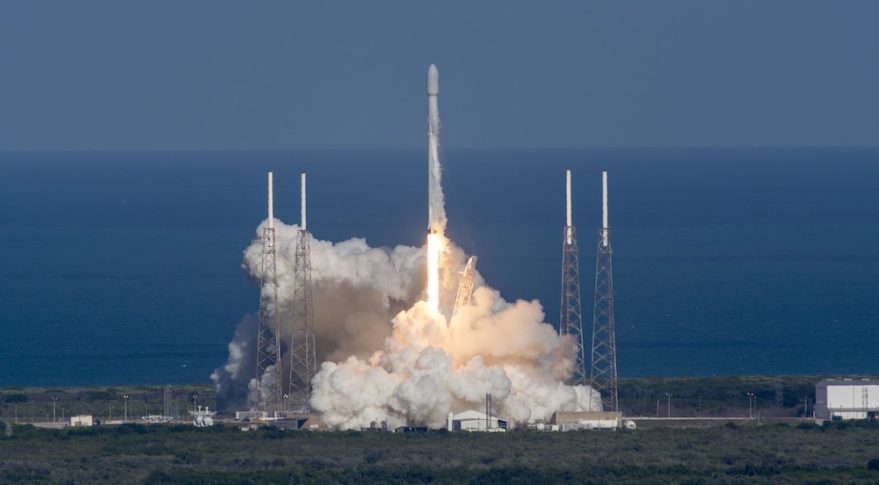SpaceX to Bring Free and Open Internet to All with the Launch of Starlink Project
Last year, the aerospace transport agency SpaceX had launched the prototype satellite for its much-talked-about project, Starlink, a project that targets to provide internet to the whole planet through a network of the satellites. And now after a year-long wait, the company will finally be launching the first batch of satellites of Starlink’s “production” version with the help of SpaceX Falcon 9 today at 10:30 PM EDT.

The company will launch 60 satellites with the help of a Falcon 9 rocket, which will be launched from a launchpad based in Cape Canaveral. After the launch, the satellites will be arranged like a constellation to cover a part of the Earth like a blanket. Starlink project will be responsible to provide open, high speed and low-latency internet to anyone in the world.
The Starlink project revolves around the concept of low earth orbit (LEO) satellites. Once the satellites are positioned in the orbit, these will link to the small terminals on the surface of the earth. The satellites are able to easily make a connection with the ground terminals as the LEO satellites are positioned at a distance as close as 99 to 1,200 miles from the surface of the Earth. This way the internet speed will also be faster as compared to the conventional methods used to provide internet.
The 60 satellites have been placed like kernels on a corncob, and with the help of a spring, these will be sent to the orbit at a particular velocity.
The launch of those satellites is a challenge for the company, which if went favourably, will be a great achievement for the company. Otherwise, there are other rival companies of SpaceX too that are also looking forward to getting their hands on similar projects, including OneWeb and Amazon too.
But since the company had test-launched similar satellite TinTin A and TinTin B successfully in the month of February, there are higher possibilities of the success of the Starlink project. According to Elon Musk, the founder of SpaceX those 60 satellites are the “production design”, and in future, the company plans to launch as many as 12000 satellites to achieve that constellation network. If the experiment goes according to the plan, people will be able to access high speed and free internet by the mid of 2020.

Yashica is a Software Engineer turned Content Writer, who loves to write on social causes and expertise in writing technical stuff. She loves to watch movies and explore new places. She believes that you need to live once before you die. So experimenting with her life and career choices, she is trying to live her life to the fullest.
